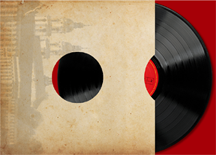Originally posted by Richard Barrett
View Post

Sound, approach and timings do vary...I guess yours was one the three better known - Berlin 1957, Berlin 1975, VPO 1988...?
He recorded the first three symphonies late in his life (1980/81), and they can be surprisingly volatile, exciting and texturally spare.


Comment